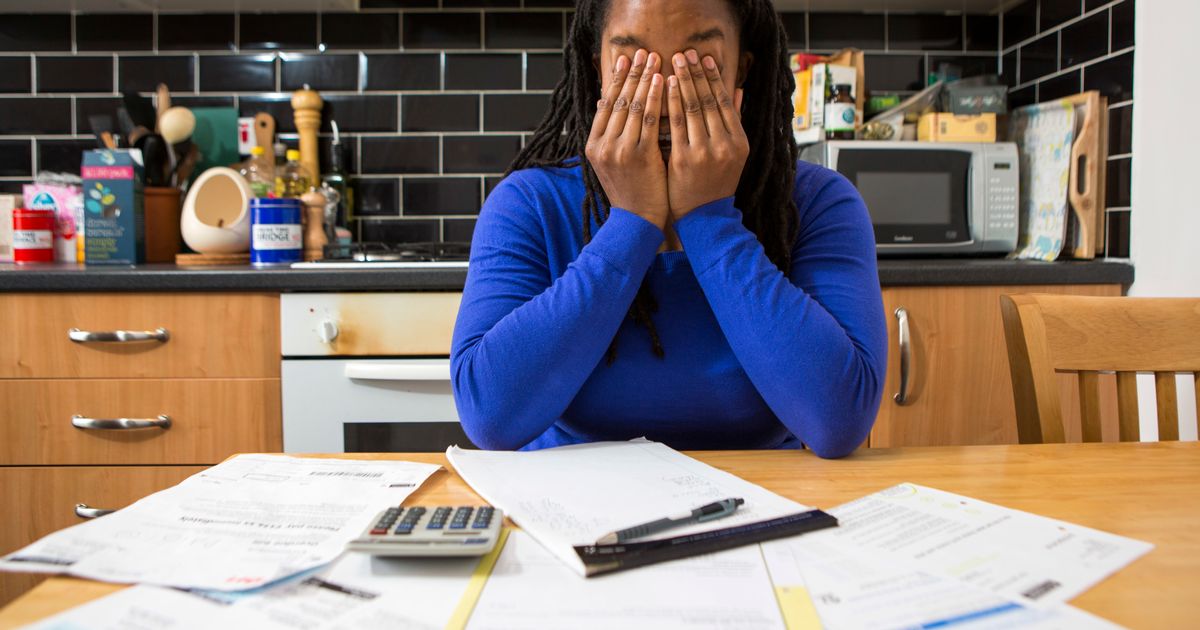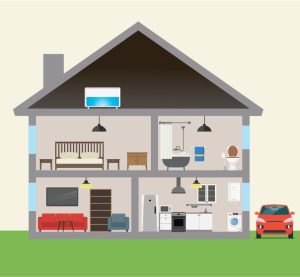
For millions of Brits around the UK, the cost of living continues to rise.
As council tax has gone up and electricity bills have skyrocketed, many are tightening their belts to make ends meet.
Renters have been hit particularly high as monthly costs continue to rise.
Rent may seem like dead money going to waste, but there are some crucial ways to save that little bit extra each month.
Some of these tricks can be easily overlooked, but none should be forgotten if you are trying to cut costs down.
Dan Whittaker, Personal Finance Expert at CashLady and experts at GTSE have shared seven essential tips to help you save money now.
Maximise radiator heat
With energy bills soaring through the roof, it can be hard to decide when it’s necessary to put the heating on.
A compromise can be investing in radiator foils which can be installed behind your heater to reflect its warmth back into the room.
These cost on average around £7, and as GTSE states it “is a super easy change to make to your home for some impressive results.
“In fact, studies have shown that using certain types of radiator foils can save you up to £4.02 per radiator[1], depending on the type of property you have.”
Check furniture meets standards
(
Getty Images)
Many renters opt for furnished housing when looking for a new place, simply for convenience and initial costs.
However, this can come back to haunt you if the items in the home aren’t up to standards.
Whittaker explains: “Most renters may not be aware that all furniture and upholstery within a property provided by a landlord must meet certain standards and, if not, it’s the landlord’s duty to replace them – not the tenant’s.
“If the furniture that comes with the property is broken and unusable, be sure to question your landlord rather than splash out on new furniture that you may not be able to move to your next home.”
This includes fire-safe furniture and if any items such as couches, sofa beds, nursery items, beds, garden furniture or cushions down pass the mark then it is essential for the landlord to replace it, not you.
Create an inventory
(
Adam Gerrard / Daily Mirror)
When first moving into a new home, make sure the landlord has created a full inventory list of when if included in the property.
This can ensure no disagreements or unexpected payments at the end of a tenancy agreement.
Whittaker says: “Despite how small damages may seem, it’s important to note everything and swiftly send an amended inventory back to your landlord.
“If you fail to highlight these at the start of your tenancy, your landlord can charge you for the damages when you move out because there will be no proof the damage was there before you moved in.”
This includes damages such as paint marks, scratches, broken furniture and general damage to the property.
Understand your rights with electricity suppliers
(
Getty Images/Image Source)
When you pay for the electricity and/or gas in the house, it is important to be able to choose your own provider.
Whittaker explains: “There have been occasions where landlords have specified the energy provider that the tenants must use in their contract. Unless the landlord is paying for the gas and electricity, which is quite rare, this is illegal.”
“There may be cases where the landlord expresses a ‘preferred supplier’, but again, this should not stop you from switching suppliers if you wish. However, you should let your landlord know if so.”
Don’t pay for things landlords should fix
(
Getty Images/iStockphoto)
Getting your landlord to pay for things that needs fixing in the property is crucial, but it is important to understand what those things are.
Appliances that come with the property are typically under the remit of this, such as:
- The structure and exterior of the property
- Appliances such as gas pipes, wiring, boilers, radiators and fitted heaters
- Bathroom items such as sinks, baths toilets and their pipework
Whittaker adds: “It’s important that renters keep their flat in a respectable state; however, these repair responsibilities are not something that your landlord can legally charge you for, and cannot be charged via anything in your tenancy agreement.”
Review your tenancy agreement
(
Getty Images/iStockphoto)
Double and triple check your tenancy agreement as there might be certain things the landlord may have missed that was promised to you.
“There may be certain elements that are easily missed, such as the requirement to have contents insurance for your home or replace certain items which came with the property when you leave.
“If you fail to comply with such requirements, this could cost you money later down the line – significantly more than if you had followed the requirements in the first place.”
Invest in an eco-kettle
Eco-kettles can use up to 30% less power to heat your water.
Tom Armenante, Ecommerce Director from GTSE says, “Energy bills have reached an all-time high, and to no surprise, majority of us are on the look-out for ways to help save some money on costly bills. Even more-so as the cold, winter months set in!
“We hope these tips provide some inspiration on just some of the ways homeowners can look to make their homes more efficient, with plenty of budget-friendly options also available to keep the warm in and the cold out.”
Read More
Read More



